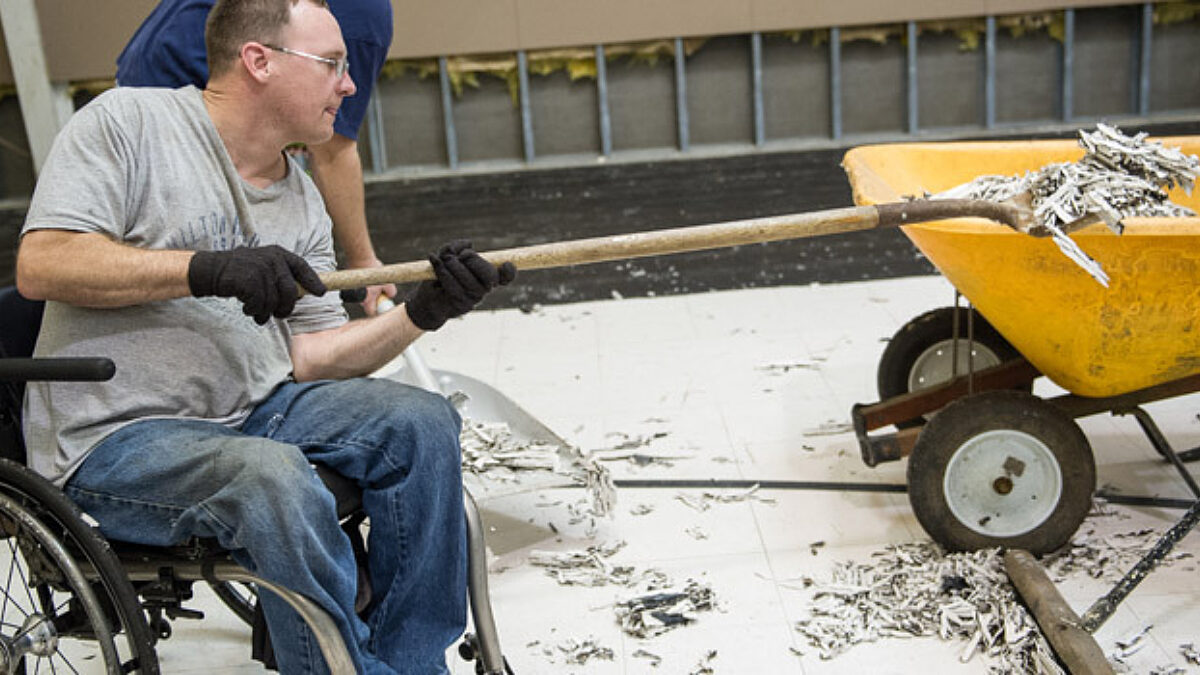
Flood recovery staffs up, calls for church help
By Jessica Brodie
With a nod from the state and a team of disaster workers that includes three case managers, a volunteer coordinator, regional construction supervisors and a brand-new recovery director, the South Carolina Conference of The United Methodist Church is taking next steps toward recovery mode.
And the new recovery director, Ward Smith, is calling on churches and individuals to help the UMCSC disaster recovery program in any way possible so they can get to where they need to be faster.
“We need your help,” said Ward Smith, noting that responding to the vast number of needs is a daily struggle alleviated by the more people who pitch in to help. “There are churches that have a mission mind and heart; how to do we fit that together (with flood recovery)?”
Smith takes the reins of recovery director from the Rev. Gregg Varner, UMCSC disaster response coordinator, who had been serving as interim recovery director since the October floods. But now, as Varner transitions back to his regular role pastoring Salem UMC, Salem, the conference has hired Smith as his permanent replacement. Smith most recently was the conference’s Midlands region construction supervisor for the disaster recovery effort.
Now, Smith, Varner and the rest of the disaster recovery team are stepping up efforts to mobilize needed help so they can assist more people.
In addition to staffing up, South Carolina United Methodist Volunteers in Mission and other UMVIM teams are actively repairing homes throughout the flood-ravaged portions of the state, Varner said. One of the holdups, acquiring the needed building permits, was smoothed out thanks to work by Varner, who appeared before the State Department of Labor Licensing and Regulation to get paperwork to make the permitting process easier and more efficient for the UMVIM teams.
The other holdup, having enough churches to step up as host sites for the UMVIM teams, is being alleviated daily, Varner said. He said churches are still “very much needed” where UMVIM teams can sleep and use a kitchen. Preferably the space will have showers, though Varner said they are in the process of acquiring a shower trailer, which will diminish that need.
“It’s a week at a time, and we are now booking teams for the summer and fall and even potentially next year,” Varner said. “We want to book as far out as we can.”
Smith said spring break will be a busy time with many teams lined up to help, but the needs extend far beyond that.
Teams are working across the Midlands, Lowcountry and upper coastal area, and most of the work is indoors replacing sheetrock, carpet, flooring and insulation. Churches willing to host teams for a week should contact Chelsey Faircloth at [email protected] or 803-786-9486, ext. 257.
Strong staff
In addition to Smith’s hire, the conference has also hired three fulltime case managers: Sabrenia Varner (Lowcountry region), Haley Mathias (Midlands region) and Cynthia Burrows Williams (Florence to Myrtle Beach region). The case managers, who received initial training the week of Feb. 8, are now in the field identifying and working with clients.
The case managers’ job is two-fold, Varner said. They work to identify individuals and families that have unmet needs and then either line them up for needed repairs to their home or pair them with resources for needs the conference cannot meet, such as mortgage and legal assistance or crisis care and counseling. Their initial list is coming from people who have called the UMCSC flood relief hotline or people South Carolina UMVIM Early Response Teams have help initially, as well as lists the disaster recovery team has received from other partner groups in the state.
“They will begin to screen those cases that we already have in our database—people who have called in the hotline, some of which ERT teams have worked on—to try to determine the right priorities and criteria for selection and who is the most needy for full case manager treatment,” explained the Rev. George Olive, UMC Marion District Disaster Response Coordinator and the chair of the South Carolina Voluntary Organizations Active in Disaster Case Management Task Force. “Then the case managers will take the unmet needs to the appropriate long-term recovery groups and try to get the necessary resources to bring that client back to, as we like to say in the world, a new ‘normal.’”
As for Smith, who has a background in mission work since his youth, Varner said he is an ideal fit for the recovery director position. Rev. Kathy James, director of Connectional Ministries, agreed.
“Ward is a South Carolina native who has spent many years working with disaster response in other parts of the country and around the world,” James said. “We are blessed that he was available and willing to serve in this capacity. I have the utmost confidence in his capacity to steer our long-term recovery effort.”
As well, in addition to Faircloth, who has been the team’s volunteer coordinator since the flood, the team is seeking two more construction supervisors and one other potential administrative position, Varner said.
More money, more help
As work picks up pace, disaster recovery leaders encourage people to continue post-flood offerings. People can give securely online at www.umcsc.org/data/disasterresponseflood2015.php or by mailing a check payable to South Carolina Conference of the UMC, South Carolina Disaster Response, P.O. Box 3787, Columbia, SC 29230.
“The more offerings and donations we receive, the more homes we can repair,” Varner said. “It’s still estimated to be a two- to four-year year project, and we hope to fix as many as 500-plus homes the first two years.”
If anyone has a flood-damaged owner-occupied home that needs repair, the hotline is still open. Call 800-390-4911 or email [email protected].
For more information: www.umcsc.org/screcovery.